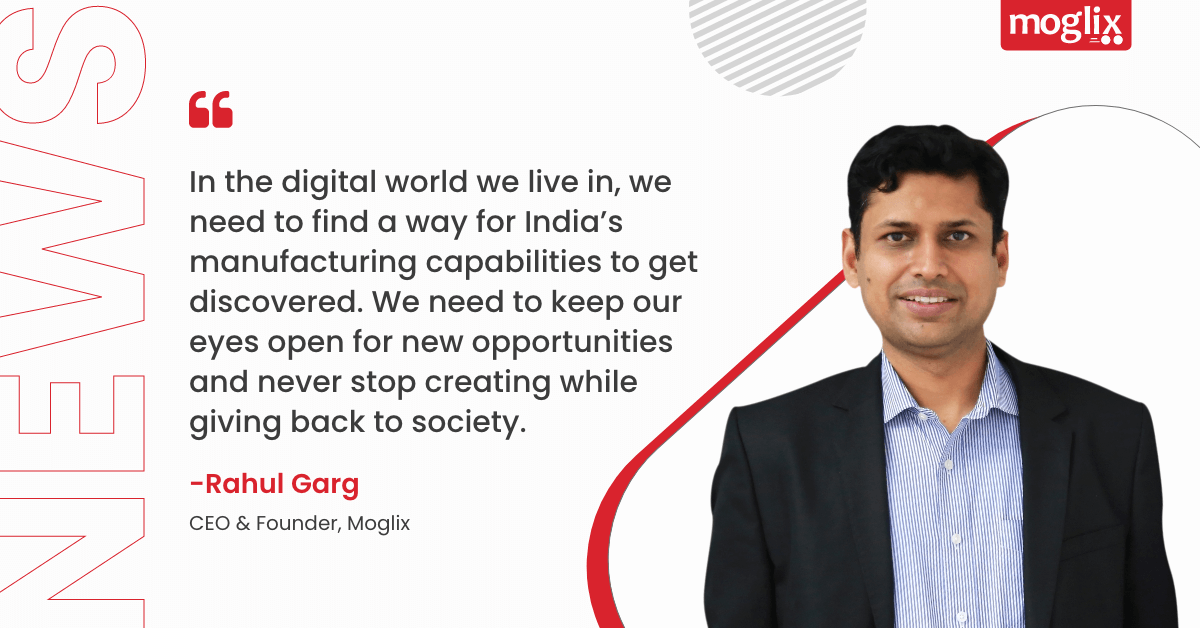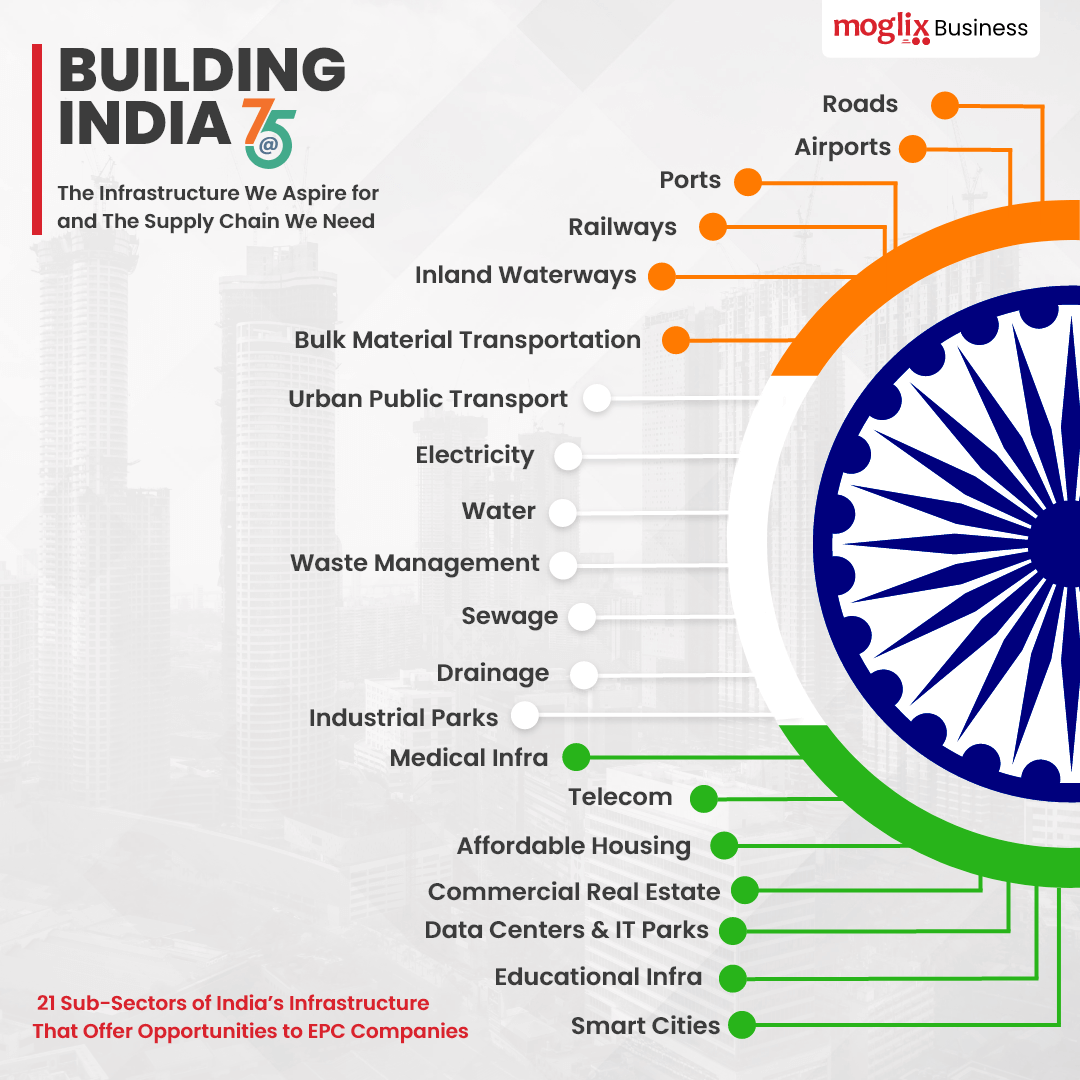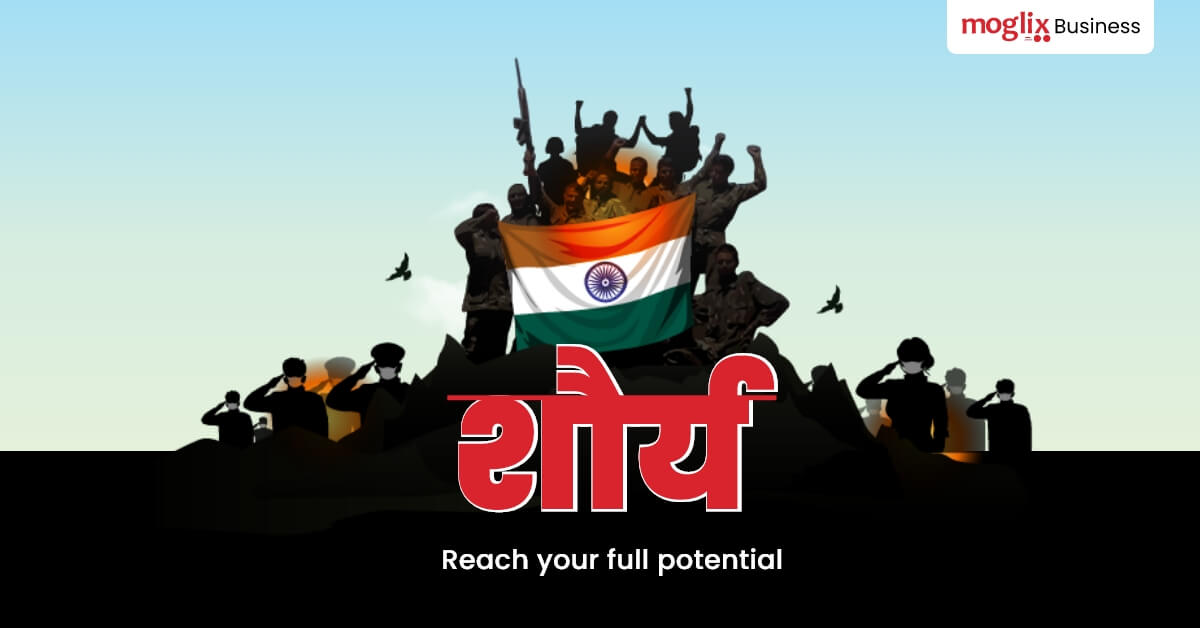Moglix- Fueling the Next Generation of Digital Supply Chain

Moglix- Fueling the Next Generation of Digital Supply Chain
Rahul Garg, CEO and Founder recently shared his vision
Moglix is an ecommerce company intensively inclined towards helping business procure industrial supplies, in particular MRO, safety, electricals, lighting, cleaning and housekeeping, office stationary and supplies, power tools and many more business essentials.
”
Talking about the spectrum Moglix covers, Founder and CEO, Rahul Garg said: “Today, we serve 5 million MSMEs and over 1,000 global enterprises to digitise their procurement and supply chain at more than 3,000 plants across auto, pharma, chemical, infrastructure, metals and mining, oil and gas, FMCG and many more sectors.”
Building India at 75: The Infrastructure We Aspire for and the Supply Chain We Need

Building India at 75: The Infrastructure We Aspire for and the Supply Chain We Need
India@01 was a new shining star of freedom that had just risen on the horizon. It was an India of humble beginnings with an aspiration to reach commanding heights. As India turns 75, this Independence Day and celebrates Azadi Ka Amrit Mahotsav, we must introspect and ask ourselves some meaningful questions.
While life during the COVID19 pandemic was tough, which sector steered India’s economy to safety shores?
What is it that we need to bridge the gaps between the talent that is locked up inside India’s demographic dividend of a 55% young population and the opportunities in the global economy?
The answer is “infrastructure”.
India’s infrastructure sector, leveraged by the government’s mega CAPEX drive, outcome-based union budgeting for the National Infrastructure Pipeline, integrated data governance initiatives like the PM Gati Shakti Master Plan, and a vision to create “100 Smart Cities” is enabling the flow of a staggering INR 1,08,17,449 Cr of value into our economy.
The government expenditure multiplier in India’s infra sector is 2X. The benefits of the CAPEX that we are pump priming will get back to us in the form of economic growth across decades.
Building India@75 signifies a generational change in “our aspirations for infrastructure in the country” and consequently brings into focus the question of “what kind of supply chain do we need to get there?”
The Supply Chain Secrets for EPC Companies Building India@75
The supply chain for building infra for India@75 needs unique performance reporting metrics, processes, competencies, and technologies that can seamlessly integrate with the way in which EPC companies do business. This e-book is divided into three parts. Part one throws light on the opportunities for EPC companies across 21 sub-sectors. Part two delves on the latest trends in the prices of cement and the production and consumption of steel in India. Part three accumulates the learning outcomes of the Infra & PSU team at Moglix Business, derived from procurement and supply chain collaborations with EPC companies.
The Future of Infra Supply Chain in India: Freedom from Efficiency Leakages for EPC Companies
India’s next generation infrastructure will not be built only on land, TMT bars, structural steel, cement, transformers, and electricals alone. Rather it will be but on a digitally concretized foundation that is value engineered through contactless, seamless, and paperless supply chain processes.
It will ensure freedom from cost, time, and manual inefficiencies to EPC companies, project developers, contractors, engineers, and suppliers building India. This Independence Day let’s pledge to build India into a meritocracy where performance connects opportunity on one hand and rewards on the other.
Redefining Procurement: Everything you need to know in 3 steps

Redefining Procurement: Everything you need to know in 3 steps
Supply chain management (SCM) is significant for mid-market firms as it lowers operational costs and boosts consumption growth. And procurement forms an integral part of SCM. However, the last few years taught us that supply chains are often overlooked. As per an analysis conducted by SAP, almost 50% companies were affected due to hindered procurement leading to supply chain disruptions.
Nevertheless, indirect procurement can be a viable solution to promote effective SCM. It is now possible with Moglix Mid-Market, an e-commerce platform managing B2B procurement of MRO and several other industrial supplies. With a pursuit to bridge the gap between B2B merchants and consumers, Moglix aims to solve the following challenges:
Primary challenges in Procurement of MRO for mid-market firms
- Unfair Pricing – Mid-market organizations must be cautious as they fail to enjoy economies of scale. Large companies and Original equipment manufacturers leverage economies of scale to get cost benefits. SME businesses are at a disadvantage which increases their average production costs.
- Hidden costs – Proper management in procurement and operations can aid mid-market firms in achieving multiple business objectives. Procurement of MRO like packaging and raw materials, capital and IT equipment, etc., can get expensive if neglected. Though initially, MRO expenses look minimal, a mismanagement can lead to inventory pile-up or even ceasing of business operations.
- Labor and Budget Constraints – Shortage of skilled workers and restricted budgets force directors/entrepreneurs to single-handedly manage procurement. In the wake of handling several company functions, MRO is often sidelined. It gives rise to unexpected costs due to unnecessary buying.
But, tackling procurement is simple if you have an established supply chain network. Moglix addresses this gap by helping businesses by digitizing their procurement process and adding visibility and traceability to buy industrial supplies.
3 Pillars of Easy Procurement
- Established Network – Moglix holds an intricate supply chain network spanning nearly 16,000 suppliers serving over 5,00,000 SME businesses. Its ubiquitous presence across major industrial towns in India ensures all customers are treated equally.
- Inventory Management Assistance – Successful inventory management is the key to a profitable business. They provide end-to-end supply chain management services for Class A/B / C products, promoting inventory optimization. Also, Moglix provides Vendor Managed Inventory(VMI) for mid-market businesses to tap the benefits of indirect procurement. It takes the load off the buyer contributing to higher company sales.
- Digitization – Digitization is changing the way of doing business. Customers can access their E-Catalog for buying and tracking the supply chain movements on the Moglix website or mobile app. They have merged technology with satisfaction by providing a quotation within 30 minutes and delivering MRO supplies in 48 hours.
The implication of innovative technological tools ushers in a new era for Procurement. Contact Moglix to tap the benefits of an optimized and all-digital procurement process.
Moglix On A Mission to give back to the Community of Armed Forces, Announces Internship Program

Moglix On A Mission to give back to the Community of Armed Forces, Announces Internship Program
Moglix has launched Shaurya, a 3-month internship program in supply chain and procurement for the children of armed forces personnel of all three wings namely, the Indian Army, the Indian Air Force, and the Indian Navy.
The internship program will provide a platform to the children of defence personnel to get exposure to the functioning of the new age supply chain industry for three months.
Introduced on the occasion of Azadi Ka Amrit Mahotsav that marks the completion of 75 years of India’s independence, Rahul Garg, Founder & CEO, Moglix, said, “We have envisaged this internship program to give back to the community of armed forces personnel by enabling access to career opportunities in the supply chain industry for their children. Candidates with relevant educational background and a zeal for the supply chain industry will become future ready through this program,” he added.
CII Knowledge Session on EXIM secrets for Global Competitiveness

CII Knowledge Session on EXIM secrets for Global Competitiveness
Date : July 22, 2022
Organizer: The Confederation of Indian Industry (CII)
About the Event: Mr. Pramit Joshi, Senior Director, Credlix recently shared his perspective on ‘EXIM Finance’ at the Confederation of Indian Industry‘s knowledge session on ‘EXIM secrets for Global Competitiveness’ at Bhavnagar, Gujrat.
IVCA Delhi Circles Event

IVCA Delhi Circles Event
Date : July 18, 2022
Organizer: Indian Venture and Alternate Capital Association (IVCA)
About the Event: Our Founder & CEO, Mr. Rahul Garg shared his thoughts on ‘Scaling to Unicorn and What’s next – Founder Journeys’ at Indian Venture and Alternate Capital Association (IVCA) along with Mr. Prashanth Prakash (Founding Partner, Accel in India) and Mr. Prashant Pitti (Co-Founder, EaseMyTrip.com)
Journey from idea stage to unicorn startup

Journey from idea stage to unicorn startup
Date : July 14, 2022
Organizer: Google Startup School
About the Event: Our Founder & CEO, Mr. Rahul Garg participated in a candid conversation on ‘Founder to Founder: From idea stage to unicorn startup’ with fellow founders, Mr. Vivek Gupta (Co-founder, Licious) and Mr. Varun Alagh (Co-founder, Mamaearth) at Google for Startups School
16th Edition of PackPlus 2022

16th Edition of PackPlus 2022
Date : July 07, 2022
Organizer: RX Global
About the Event: Mr. Ankit Baghel, Associate Director (Packaging), Moglix shared his perspective on ‘Packaging for Ecommerce: Channel-specific packaging Vs Omnichannel Packaging?’ at the 16th Edition of the recently concluded PackPlus.
Business Today MindRush

Business Today MindRush
Date : June 24, 2022
Organizer: India Today
About the Event: Mr. Rahul Garg, Founder & CEO, Moglix shared his perspective on ‘Deep Freeze – A Long Winter for Startup’ at the 10th edition of Business Today’s MindRush.
CII- EV India Summit Southern Region

CII- EV India Summit Southern Region
Date : June 24, 2022
Organizer: The Confederation of Indian Industry (CII)
About the Event: Mr. Rishi Arora, Vice President, Moglix recently shared his perspective on ‘Digital First Procurement’ at the CII Southern Region EV Summit
